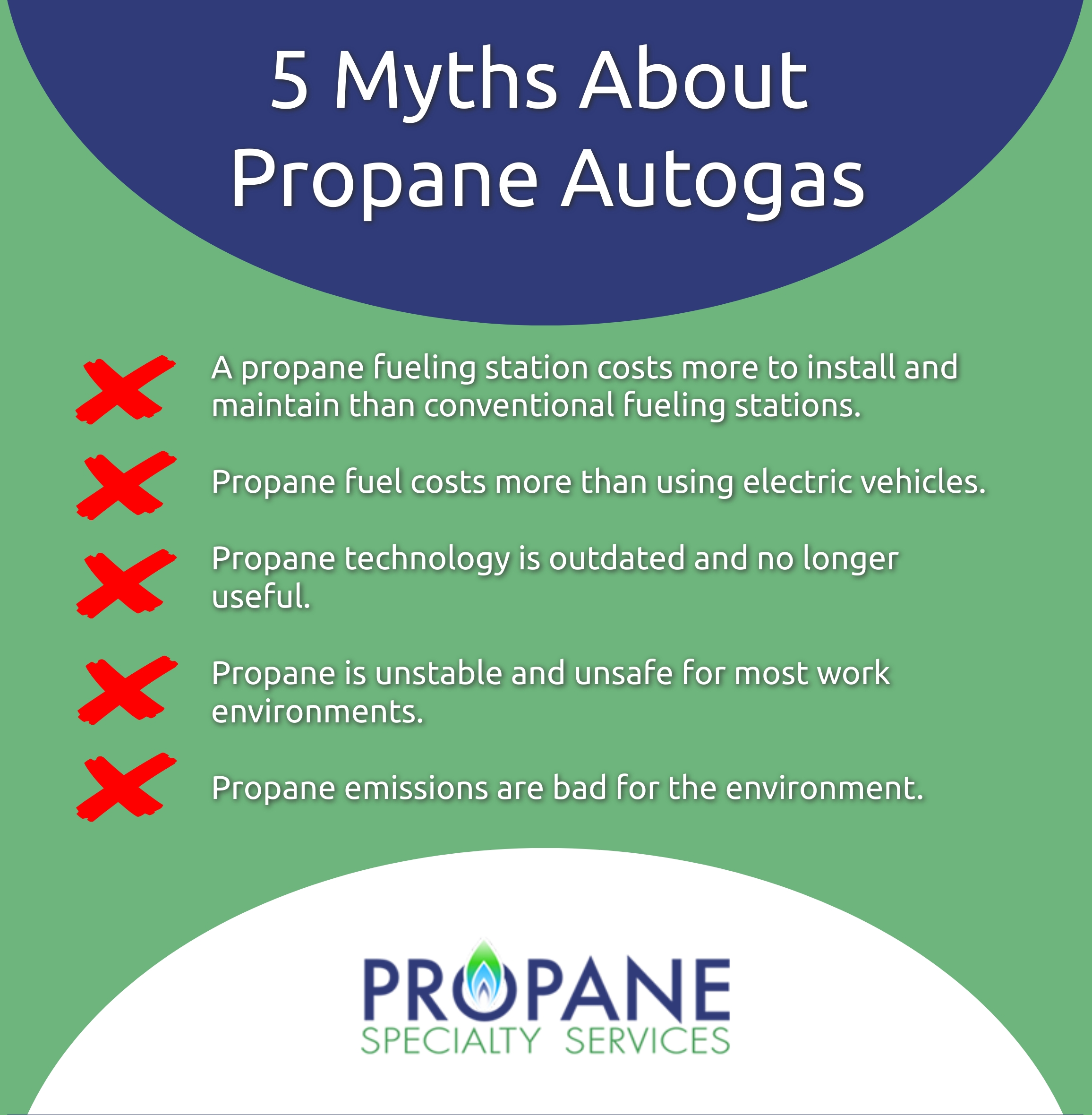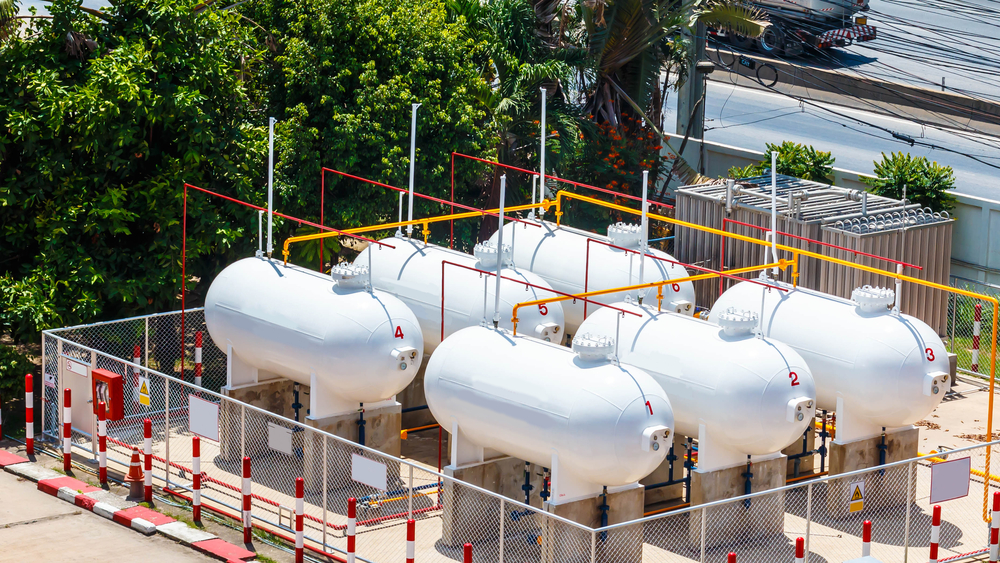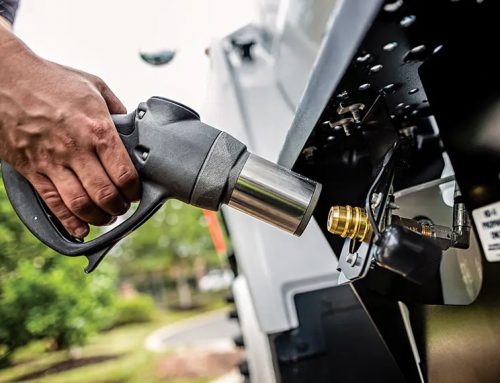Propane has plenty of applications beyond powering heaters or backyard grills. Modern improvements have made it not only possible but often better for propane to be used as fuel for heavy-duty vehicles in a variety of industries. But some are skeptical. Is propane really the best choice in certain cases?
[bctt tweet=”Not sure about using propane as vehicle fuel? Your concerns may be based on myths. Find the facts about propane fuel here. #PropaneSpecialty” via=”no”]

Understanding Propane Autogas
While gasoline and diesel fuel are still the go-to for the vast majority of vehicle operators, propane autogas has proven itself to be a worthy contender. Unfortunately, misinformation about propane fuel abounds. You may have heard misleading or false statements about propane, bringing up potential issues like:
- Higher installation and maintenance requirements
- Prohibitive costs
- Obscure technology
- Safety concerns
- Negative environmental impact
1) Higher Installation & Maintenance Requirements
You may be under the impression that a propane fueling station needs far more attention during installation and ongoing maintenance than an electric charging station. This idea likely comes from the fact that many alternative fueling stations do require a lot of work, with some even requiring specialized permits or training. Autogas equipment isn’t nearly this high-maintenance. With recent advancements in safety and efficiency through improved technology, autogas stations are comparatively simple and safe to set up.
2) Prohibitive Costs
It’s easy to look at the sky-high costs of electric vehicle charging stations and worry that propane autogas stations will have similar prices. Combine this with the outdated notion that propane simply isn’t worth it, and you’ll pass up a valuable opportunity for genuinely affordable fuel. Propane is remarkably inexpensive compared to its competitors. Making the switch could reduce your budget by a significant amount.
3) Obscure Technology
Propane autogas technology has improved significantly since its initial rollout, but not many people in the industry have taken notice. Electricity or gasoline have been the defaults long enough that most people don’t consider propane to be a viable option. With recent advancements, propane handling technology is far easier to use and install than ever before. It’s well worth your time to give this improved tech a chance.
4) Safety Concerns
When you think about safe energy sources, propane likely isn’t the first example to come to mind. However, propane fuel is remarkably safe in comparison to gasoline. Propane-powered vehicles are designed to withstand extreme hot or cold temperatures all year round. Better yet, if any propane fuel leaks out, it will not contaminate groundwater or soil, keeping pollution to a minimum.
Pro Tip: Propane is a remarkably stable fuel, safe for use in vehicles from haul trucks to school buses. How can your business take advantage of propane’s excellent safety record?
5) Negative Environmental Impact
It’s easy to brush off any combustible fuel as bad for the environment. We’re so used to emissions from conventional gasoline that we assume any type of burning fuel is equally problematic. However, propane burns very cleanly and produces virtually no pollutant particles in the air. If you’re looking to keep your emissions low, propane is a far better bet than even electricity.
Give Propane a Chance
Your understanding of propane autogas may be based on outdated information or problems that have long since been solved. Why not see if propane autogas could be the right choice for your industry? You might be surprised.
Contact us to learn more about advances and improvements in the propane industry.







Leave A Comment